Content
Special inventors
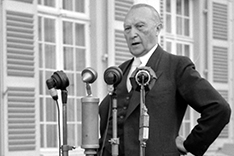
Konrad Adenauer is known as the first chancellor of the Federal Republic, who tied the young FRG to the West, achieved reconciliation with France, drove European unification and brought the last prisoners of war home from Russia. Less well known is that Adenauer was also an inventor throughout his life.
 Read more
Read more

Tribute to a „design icon“: At the Design Europa Awards, the Lifetime Achievement Award goes to Dieter Rams. The EUIPO jury honours him as a „pioneer of both design and sustainability“ who „designed more than 200 iconic devices and shaped the look and functionality of consumer products for decades.”
 Read more
Read more
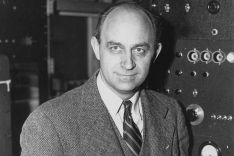
One of the most important physicists of the 20th century: Enrico Fermi. He is often called the "father of the nuclear age" because he built the first nuclear reactor and helped develop the atomic bomb. But Fermi's work goes far beyond that.
 Read more
Read more

During the Covid pandemic, there were few health issues that preoccupied mankind as much as immunisation. One of the first spectacular vaccination successes started on 6 July 1885, when Louis Pasteur began immunising a person infected with rabies in Paris.
 Read more
Read more
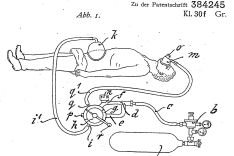
Bernhard Dräger was to write an important piece of German technical and corporate history. Together with his father Heinrich, he developed breathing apparatus for mining and firefighters, resuscitation equipment, automatic anesthetic machines and diving equipment.
 Read more
Read more
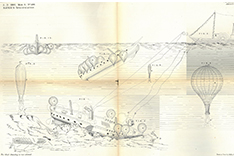
Far away from the sea lies the home of the first German submarine builder: Wilhelm Bauer was born in Dillingen on the Danube. He not only built the world's oldest surviving submarine, the "Brandtaucher", but was also a pioneer in wreck salvage.
 Read more
Read more
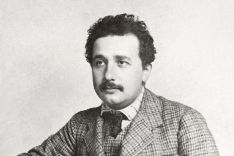
A genius of the century, an icon of the natural sciences, the most famous physicist of all time: With Albert Einstein, you run out of superlatives. It is not generally known that Einstein (who died 70 years ago) also was a patent examiner and inventor.
 Read more
Read more
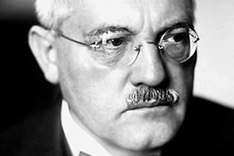
He was the defining figure of the German chemical industry in the first half of the 20th century: Carl Bosch. His greatest achievement was his contribution to the mass production of fertilizers, to which a large part of the world's population still indirectly owes its food today.
 Read more
Read more
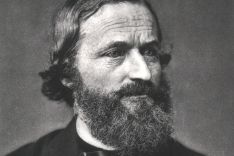
Gustav Robert Kirchhoff may not be the best-known German physicist, but he is certainly one of the most influential. His laws and writings on electrical circuits are particularly influential. He is also regarded as the founder of theoretical physics as well as the father of spectral Analysis.
 Read more
Read more

Walter Gropius, German architect and founder of the Bauhaus, is regarded worldwide as an important thinker, designer and pioneer of modernism. Let us ommemorate his work around the Bauhaus.
 Read more
Read more
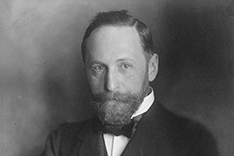
Richard Willstätter was one of the many brilliant scientists who were chased out of their homeland during the times of National Socialist barbarism. Nobel laureate, multiple honorary doctorate, member of international scientific societies - but because he was constantly attacked as a Jew, he gave up his chair at Munich university as early as 1924.
 Read more
Read more
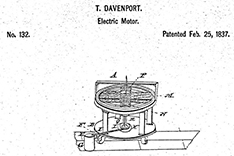
Thomas Davenport was not only one of the pioneers of electrical engineering, but also one of the first inventors to appreciate securitised intellectual property. His patent, which he received in the USA on 25 February 1837, bears the number 132 and was the world's first patent on an electric motor.
 Read more
Read more
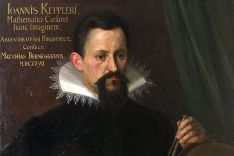
Christians all over the world celebrate the birth of Jesus at Christmas. Exactly when this took place has been the subject of debate for centuries. However, Johannes Kepler's date of birth is undisputed: 27 December 1571. The astronomer tried to determine the year of Christ's birth using scientific methods.
 Read more
Read more
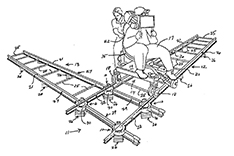
He is probably the best-known film director in the world: Steven Allan Spielberg. He is also considered the most commercially successful director and producer, but he has also won numerous awards. And he is one of the few directors who applied for patents.
 Read more
Read more
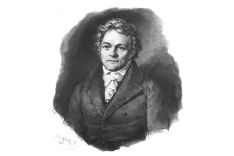
Almost every author has difficulties with his publisher at the beginning of his career. In the case of Alois Senefelder, this turned into an epoch-making development. He invented a new printing process: lithography.
 Read more
Read more
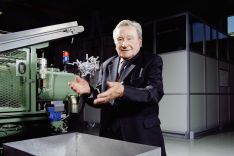
We owe it to Artur Fischer that pictures don't fall from the wall, shelves are fixed and the wardrobe hangs securely. The inventor from Tumlingen is regarded as one of the most productive inventors of all time: he filed 2252 patents and utility models with the DPMA.
 Read more
Read more

Hollywood star, "most beautiful woman in the world", inventor: Hedy Lamarr was one of the most dazzling women of the 20th century. She embodied the beauty ideal of her time, was a scandalous superstar - and author of a visionary patent.
 Read more
Read more
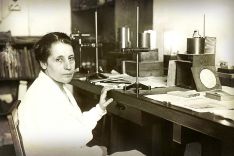
There have always been controversial decisions in the history of the Nobel Prizes. One of the Academy's biggest omissions is that it has repeatedly ignored Lise Meitner in awarding the prizes - despite 48 nominations!
 Read more
Read more
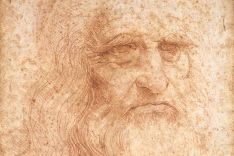
On 2 May 1519, a man of superlatives died at Clos Lucé Castle in Amboise, Leonardo da Vinci. He is not only regarded as one of the greatest painters in history, but also as an unrivalled all-round genius and universal scholar. A true the Renaissance Superman.
 Read more
Read more
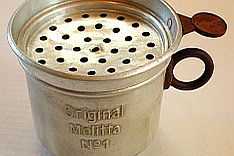
In 1908, a utility model was registered at the Kaiserliches Patentamt in Berlin, which is important in several respects: Firstly, the applicant was one of the first women to have her own invention personally protected. On the other hand, this invention was extremely successful and is still present in practically every household.
 more
more
MGM / Public domain via Wikimedia Commons, Archiv der Max Planck Gesellschaft, Landesstelle für Museumsbetreuung Baden-Württemberg
Last updated: 16 January 2026
Not only protecting innovations
Social Media